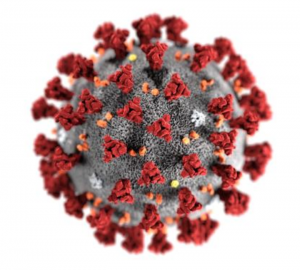The U.S. Food and Drug Administration issued an emergency use authorization (EUA) today to enable emergency use of the Centers for Disease Control and Prevention’s (CDC) 2019-nCoV Real-Time RT-PCR Diagnostic Panel. To date, this test has been limited to use at CDC laboratories; today’s authorization allows the use of the test at any CDC-qualified lab across the country.

“Since this outbreak first emerged, we’ve been working closely with our partners across the U.S government and around the globe to expedite the development and availability of critical medical products to help end this outbreak as quickly as possible. This continues to be an evolving situation and the ability to distribute this diagnostic test to qualified labs is a critical step forward in protecting the public health,” said FDA Commissioner Stephen M. Hahn, M.D. “Our collaboration with the CDC has been vital to rapidly developing and facilitating access to this diagnostic test. The FDA remains deeply committed to utilizing our regulatory tools and leveraging our technical and scientific expertise to advance the availability of critical medical products to respond to this outbreak in the most expeditious, safe and effective manner possible.”
Under this EUA, the use of 2019-nCoV Real-Time RT-PCR Diagnostic Panel is authorized for patients who meet the CDC criteria for 2019-nCoV testing. Testing is limited to qualified laboratories designated by the CDC and, in the U.S., those certified to perform high complexity tests. The diagnostic is a reverse transcriptase polymerase chain reaction (PCR) test that provides presumptive detection of 2019-nCoV from respiratory secretions, such as nasal or oral swabs. A positive test result indicates likely infection with 2019-nCoV and infected patients should work with their health care provider to manage their symptoms and determine how to best protect the people around them. Negative results do not preclude 2019-nCoV infection and should not be used as the sole basis for treatment or other patient management decisions. Negative results must be combined with clinical observations, patient history and epidemiological information.
The FDA can issue an EUA to permit the use, based on scientific data, of certain medical products that may be effective in diagnosing, treating or preventing such disease or condition when there is a determination, by the Secretary of Health and Human Services (HHS), that there is a public health emergency or a significant potential for a public health emergency that has a significant potential to affect national security or the health and security of U.S. citizens, and a declaration that circumstances exist justifying the medical products’ emergency use.
On Jan. 31, HHS Secretary Alex Azar declared a public health emergency recognizing the potential threat that 2019-nCoV poses and reiterating the government’s dedication to leveraging all available resources to help prevent, mitigate and respond to this threat. As there are no commercially available diagnostic tests cleared or approved by the FDA for the detection of 2019-nCoV it was determined that an EUA is crucial to ensure timely access to diagnostics. The HHS Secretary accordingly today made the necessary EUA determination and declaration and the FDA issued this EUA in response to a request from the CDC. This action is the result of the close collaboration between the FDA, the CDC and the Centers for Medicare and Medicaid Services, which provides oversight for U.S. laboratories, to prioritize the efficient development and implementation of critical medical products in response to emerging infectious disease outbreaks, such as novel coronavirus.
- Early spread of coronavirus extends far beyond China’s quarantine zone: University of Texas at Austin researchers
- Hendra and Nipah virus treatment found safe and effective in Phase I clinical trial
- 2019 Novel coronavirus update: Hong Kong death, Thailand cases rise
- Liberia reports increase in Lassa fever
- Australia: 2019-nCoV cases at 12 in four states
- India reports 3rd novel coronavirus case, Kerala declares ‘state of calamity’
- Ebola: First-ever experimental Sudan virus specific antibody treatment protects animals

